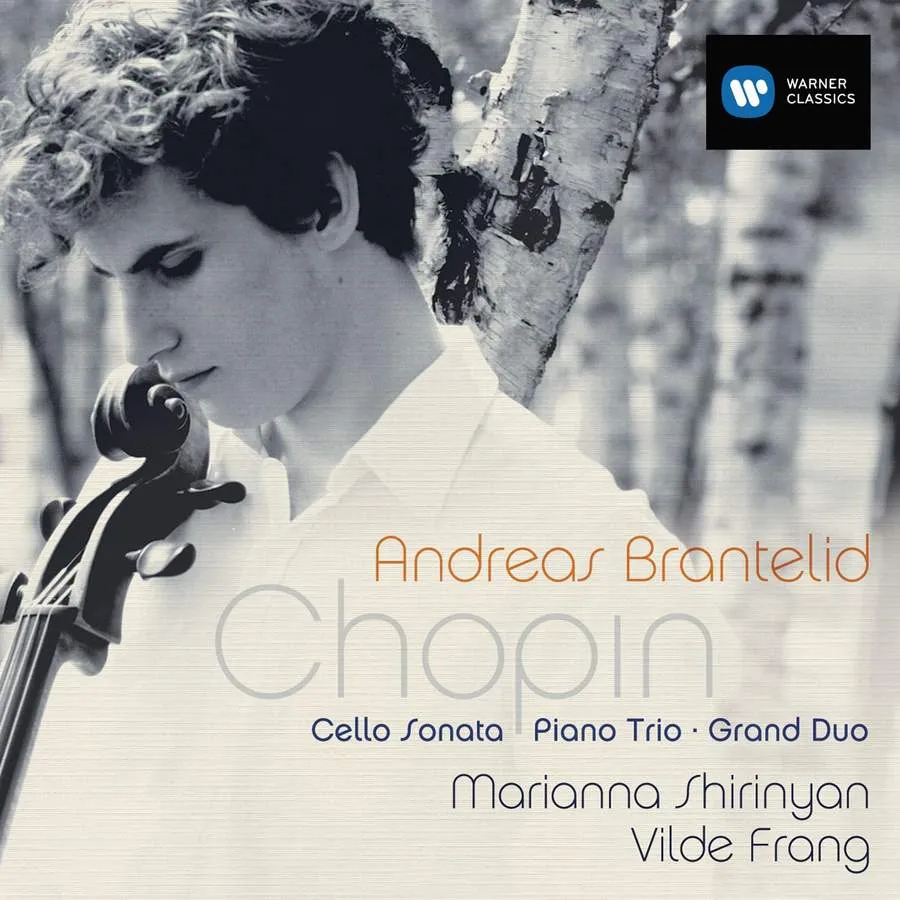
COMPOSERS: Chopin LABELS: EMI WORKS: Cello Sonata in G minor, Op. 65; Piano Trio in G minor, Op. 8; Grand Duo for Cello and Piano PERFORMER: Andreas Brantelid (cello), Marianna Shirinyan (piano), Vilde Frang (violin) CATALOGUE NO: EMI 687 7422
Chopin’s Cello Sonata is so assured, one can only wish he’d returned to the form. It bridges the substantial, formal sonatas of Mendelssohn and Brahms on one side, and the soul and wildness of Rachmaninov’s Sonata on the other. Written for the great French cellist Auguste Franchomme, it may not be vastly virtuosic but holds precious rewards for a cellist willing to dig deep.
Andreas Brantelid has a silken legato and sings the eloquent Largo with ardour. This is a lovingly-prepared performance, with no detail neglected, but in the first movement this does lead to some ponderous moments. Playfulness returns in the Scherzo and there’s greater abandon in the finale.
Chopin cannot be accused of penning an overbearing piano part, but an extremely subtle one, open to a wide range of interpretations. Of available recordings Martha Argerich is the most mercurial (Maisky/DG) and Kathryn Stott the most considered (Mørk/Virgin). Here, Marianna Shirinyan is alive to nuance, though she may lack the riveting unpredictability of Argerich.
Brantelid more than holds his own, but the competition is stiff, Yo-Yo Ma/Emmanuel Ax providing something more lively, while Truls Mørk brings an intensely poetic introspection. Ma’s recording also boasts a fine performance of the Piano Trio, but, again, Brantelid’s performance with the vivacious violinist Vilde Frang is entrancing. They draw us in to an engaging narrative and enjoy the play in the finale. Brantelid acquits himself with aplomb in the Grand Duo Variations; an impressive cellist and definitely one to watch. Helen Wallace